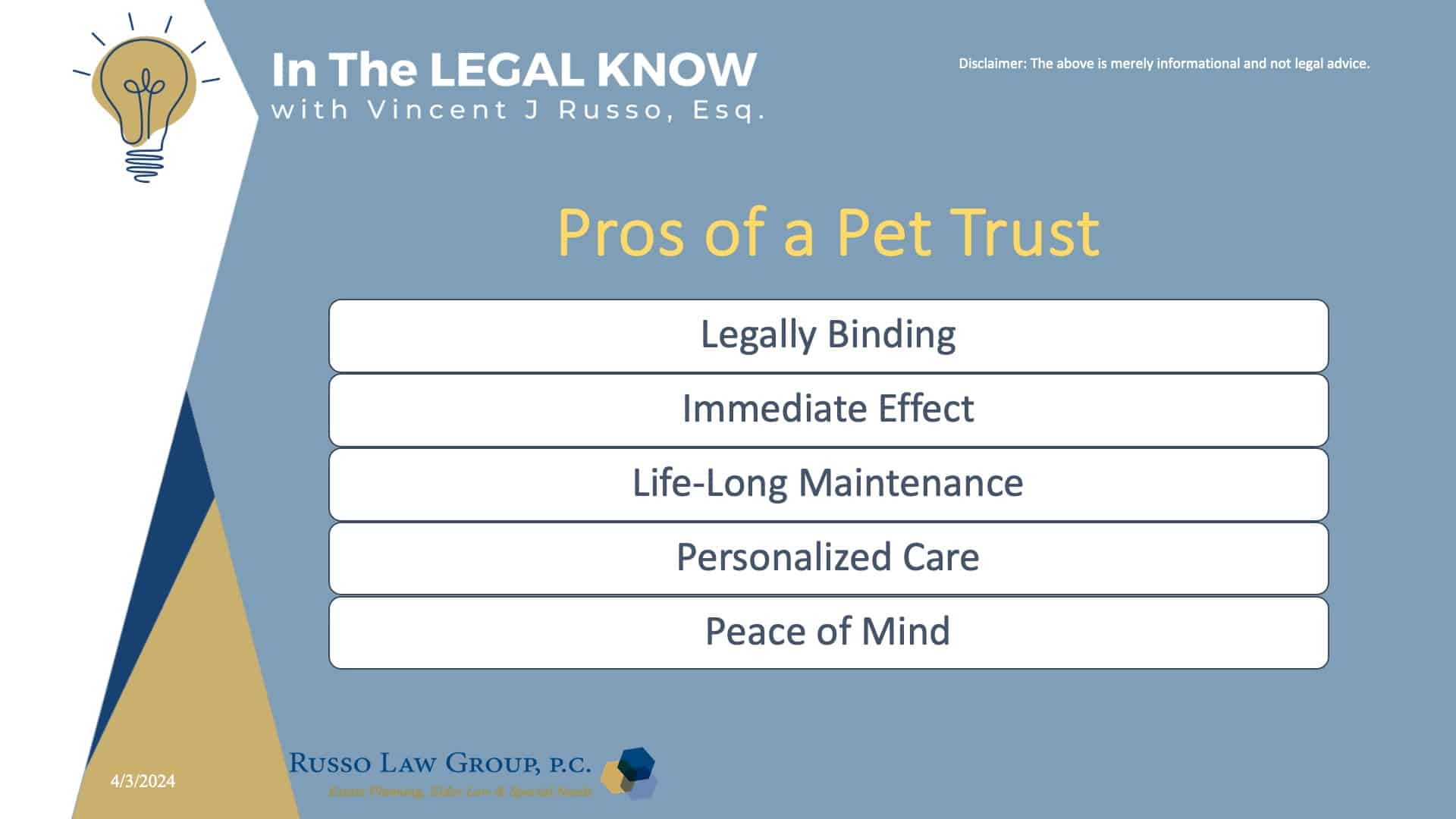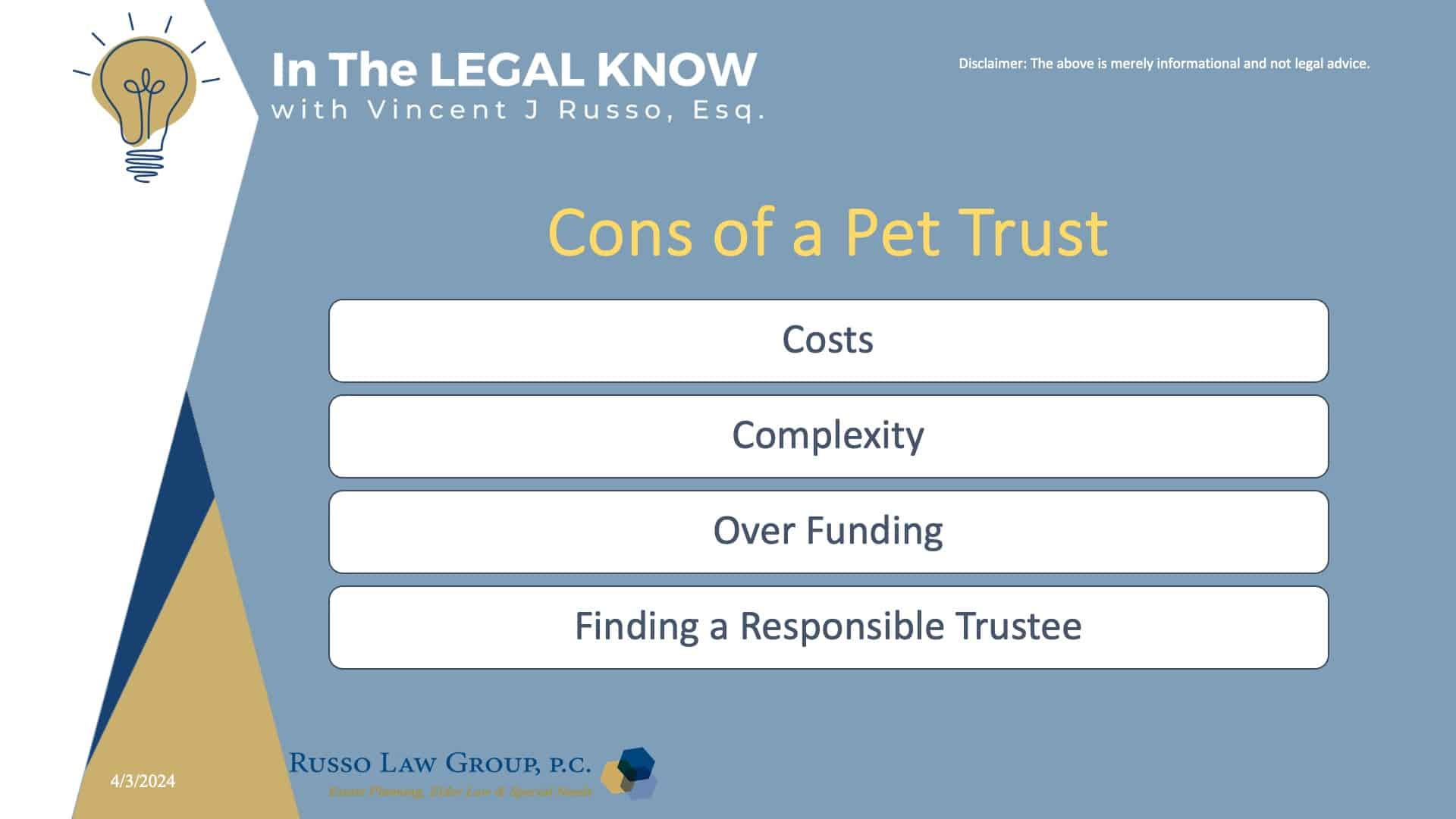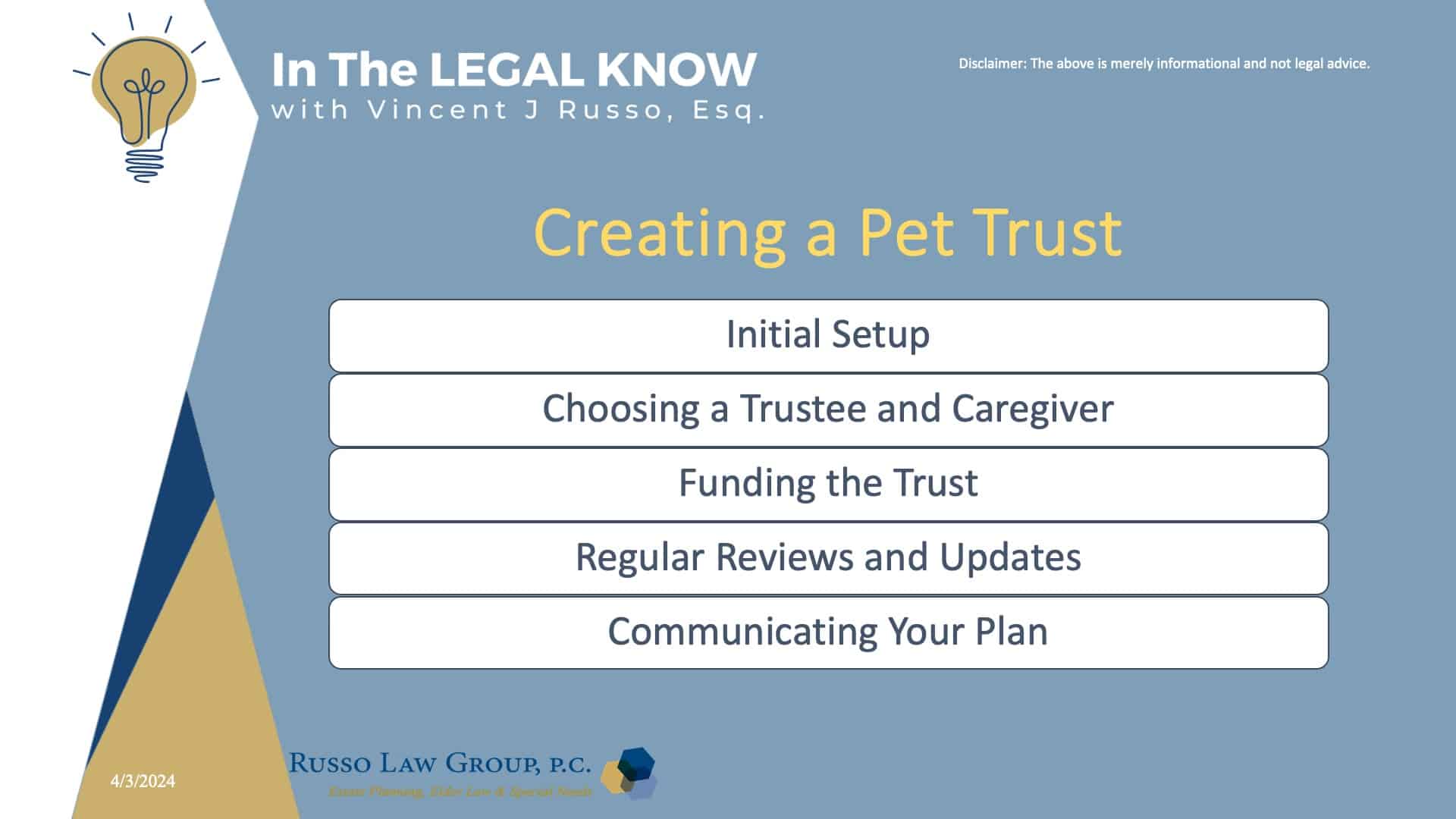This originally aired on the Catholic Faith Network’s show CFN Live: https://youtu.be/_37V4R4aXYo Today, many people…
This originally aired on the Catholic Faith Network’s show CFN Live: https://youtu.be/WW9rL3xNUl8
Our pets are part of our family, and we need to consider them when implementing one’s estate plan.
What are the options when my pet passes away?
Although you can’t leave money directly to a pet, there are several things you can do to make sure your pets stay well cared for when you can no longer take care of them.
Here are some options:

- Leave your pet (and some money) to someone in your Will or Living Trust.
- Sign up with a charitable organization’s program to provide or find a home for your pet.
- Create a pet trust to leave money for the care of your animal.
Using a Will or Living Trust to Name a New Owner of your Pet

Charitable Programs That Provide Homes for Pets
It’s often tough to find someone both willing and able to take care of a pet. But if no one comes forward to re-home the animals, it is likely that your pets will be taken to a local animal shelter or charity to be cared for and, hopefully, found a new home.
Responding to that need, a few programs have sprung up across the country to ensure that pets will have a loving home when their owners can no longer care for them.
Some organizations find loving homes for the pets of owners, others will care for your pet for its lifetime, if you make a large (commonly, around $10,000 to $25,000) gift.
Below are some organizations that can help you make arrangements for your pet.
What is a Pet Trust?
A Pet Trust is a legal agreement that provides for the care and maintenance of one or more pets in the event of the owner’s disability or death. Unlike a will, a Pet Trust goes into effect as soon as it’s created, ensuring immediate protection and care for your pets. As of 2022, all 50 states and the District of Columbia have enacted pet trust laws.
To create a Pet Trust, a pet owner (the settlor) must transfer property to a trustee who manages and distributes the funds according to the trust’s terms. The trustee can be an individual or an organization, and they have a legal obligation to carry out the trust’s instructions. The trust will also specify the caretaker who will be responsible for the day-to-day care of the pet.
It’s important to be as detailed as possible in the trust document. This should include provisions for the type of care, specific instructions for feeding, medical needs, and even the routine or lifestyle that should be maintained for your pet. Consider the age, health, and needs of your pet, and be realistic about what will be required to maintain their quality of life.
What are the advantages and disadvantages of Pet Trusts?
There are always pros and cons that need to be considered.
Here are the Pros of a Pet Trust:
- Legal Bond: Trusts are generally more legally binding than Wills, reducing the risk of contestation and ensuring they hold up according to your wishes.
- Immediate Effect: Trusts go into effect immediately, so there’s no delay in providing for your pet’s care.
- Life-Long Maintenance: You have the ability to provide for your pet’s needs for the remainder of their life rather than just a one-time inheritance.
- Personalized Care: A trust can be highly detailed, ensuring the quality of care and the lifestyle of the pet remains as close as possible to the one you provided.
- Peace of Mind: Knowing that your pet will receive care after you’re no longer able to provide it can be a tremendous comfort.
And here are the Cons of a Pet Trust:
- Costs: Establishing a trust can be more expensive than creating a will, and it often involves ongoing management fees.
- Complexity: Trust documents can be complex, and it may take more effort to establish and maintain than a simple will.
- Over Funding: There is a risk of overfunding the trust, which could lead to your pet becoming a target of greed or legal disputes.
- Generally, the Courts may reduce the amount held in a pet trust. The most well-known pet trust is the one created by Leona Helmsley for her beloved white Maltese, “Trouble.” Trouble’s Trust was originally funded with twelve million dollars. The Manhattan Surrogate’s Court reduced the size of the trust to two million dollars, determining that the trust was overfunded for the implementation of the decedent’s wishes.
- Finding a Responsible Trustee: You will need to choose a responsible and trustworthy trustee and ensure you have a backup plan if things don’t go as expected.
How does a Pet Trust work in practice?
The Initial Setup
The first step in setting up a pet trust is to speak with a qualified attorney who specializes in estate planning. Discuss your wishes and the needs of your pet and draw up the trust document according to state-specific laws.
Choosing a Trustee and Caregiver
Select a trustee who you believe will carry out your wishes and a caregiver who will honor the intended lifestyle and care of your pet. It’s critical to choose individuals or organizations willing and able to fulfill the duties long-term.
Funding the Trust
You’ll need to determine how much money to put in the trust to cover the cost of your pet’s care. Remember to consider veterinary care, grooming, and even future costs if your pet outlives the original amount, you put in.
Regular Reviews and Updates
Pets’ needs can change over time, so it’s important to review and update the trust, especially after significant life events like moving, changing jobs, or welcoming a new pet into your family.
Communicating Your Plan
Once the trust is established, make sure all relevant parties know about it. Family members, the trustee, and the caretaker should all have copies of the trust to ensure your pet’s needs are met without delay.
Any conversation about death can be hard, including when pets are involved. When it’s your own pet, you probably don’t want to think about leaving them behind. However, putting a plan in place for pet care after death can help put your mind at ease.
We hope you found this article helpful. Contact our office today at 1 (800) 680-1717 and schedule an appointment to discuss what makes sense for you and your loved ones.







Comments (0)